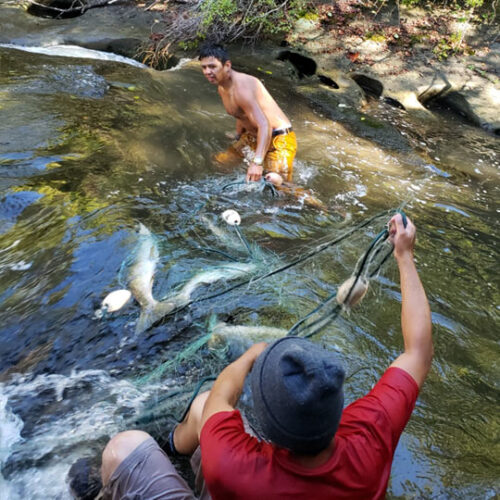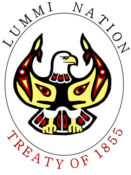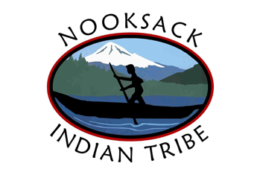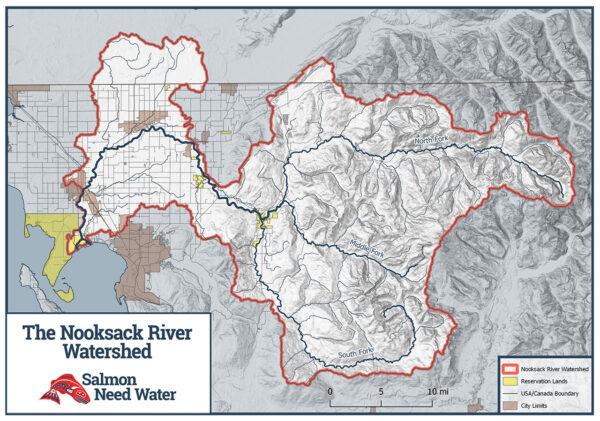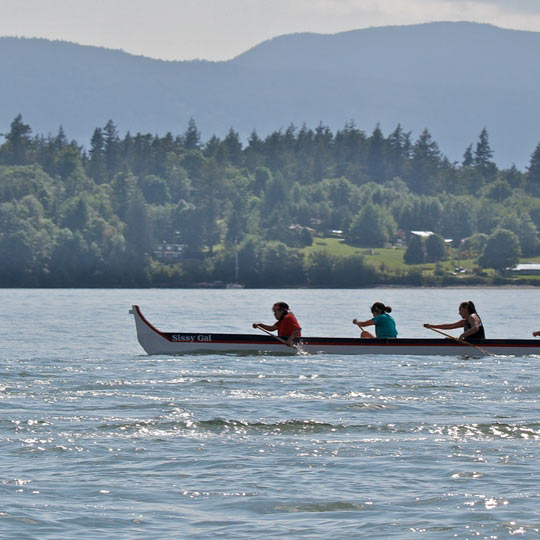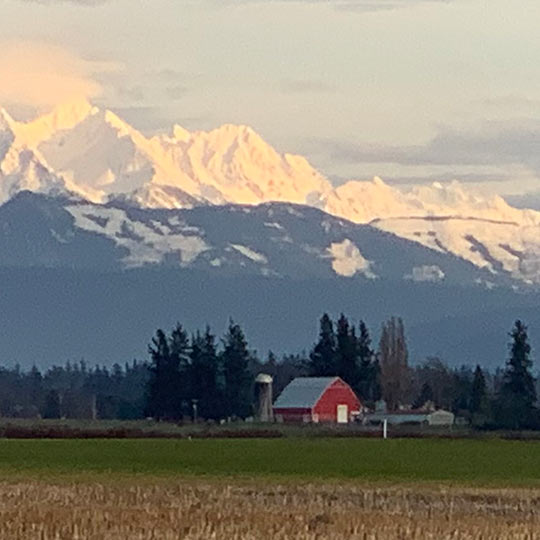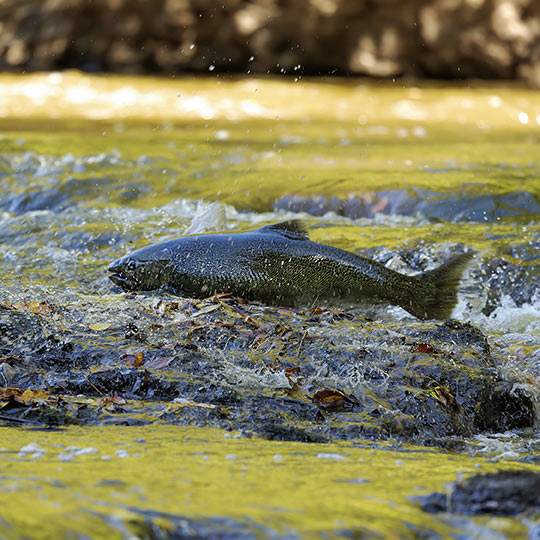Salmon Need Water is a joint project of the Nooksack Tribe and the Lummi Nation
“Water in the Nooksack basin is a limited resource and will only become more so with the increasing demands of a growing human population and the impacts of climate change.”
– Lawrence Solomon
Former Chairman, Lummi Nation
Adjudication: a formal court judgment on something that is disputed. In the Nooksack watershed, water has been in dispute for decades.
Today we face diminishing salmon runs, a growing population, a changing climate, and a lack of clarity about water rights. For years people have tried to find voluntary solutions, with little success. Water rights must be resolved. Adjudication – a formal court judgment of water claims – that is based on the facts – is the only fair way to sort through and resolve water disputes.
Salmon Need Water is a joint project of the Nooksack Tribe and the Lummi Nation. We hope to educate you about water and salmon, inform you of the adjudication process, and inspire you to take action to support a full and fair process to finally resolve the water disputes in Whatcom County. We are neighbors in this beautiful place. We are working to leave salmon in our streams and rivers for our children, grandchildren, and future generations.
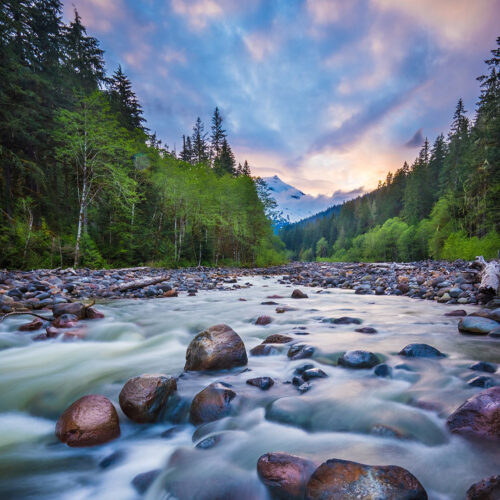
Background
People in Whatcom County have relied on salmon since time immemorial, from the people of the Nooksack Tribe and Lummi Nation, to settlers who arrived here to fish and process salmon. Historically, the rivers and streams in our area would literally fill with salmon, but that abundance has declined sharply in recent decades. Salmon today must face the challenges of degraded habitat, poor water quality, and insufficient stream flow. Considerable effort has focused locally on restoring habitat and improving water quality, but protecting water has proven substantially more difficult.
Western water law operates under the doctrine of prior appropriation, or first-in-time, first-in-right. Meaning that those who hold the oldest (or most senior) water rights, must have their water needs fully satisfied before those who hold the newest (or most junior) water rights can draw upon a shared water source. In times of plenty, all water rights holders may be able to put their water to full beneficial use, but, in times of shortage, junior water right holders may be required to restrict (or curtail) their water use. This system is designed to ensure that junior water rights holders do not damage (or impair) the rights of those who are senior.
Unfortunately, the system is not working as designed in large part because there is no court-approved inventory of water rights in the Nooksack basin. Effective management would be difficult just considering the sheer number and complexity of competing water rights on the basin, not to mention that some water use in the area is entirely unpermitted. Meanwhile, population growth and climate change further threaten our limited water resources.
Lummi Nation and the Nooksack Tribe need salmon, and salmon need water.
Through the Treaty of Point Elliott, tribes in the greater Puget Sound region ceded title to much of their ancestral homelands while reserving the right to hunt, fish and gather throughout their traditional territories as they had since time immemorial. Court decisions have affirmed that treaty rights include sufficient water to support those rights, which includes rights to instream flows to support salmon. These water rights have a priority date of time immemorial and are therefore the most senior water rights in a given basin.
How do we make sure there’s enough water in the Nooksack for salmon to thrive? Through an adjudication. This is a legal process that brings all water users in a watershed together to quantify and confirm their water right. Simply put, an adjudication is an inventory of who has a right to how much water, when it can be used, and where it can be used. The process legally and permanently determines everyone’s water rights, providing the certainty that is so important for fishing, business, including farm businesses, and people.
